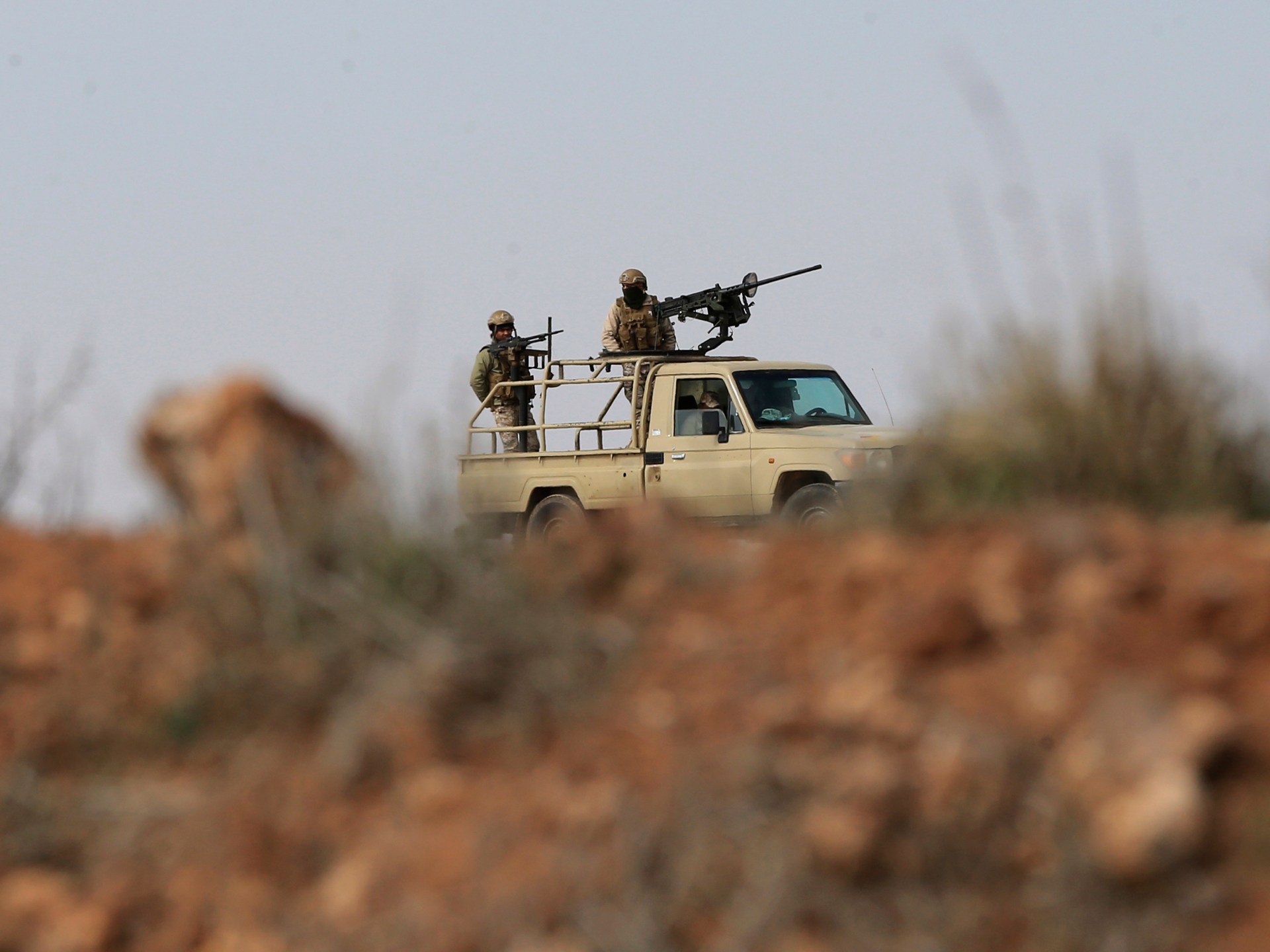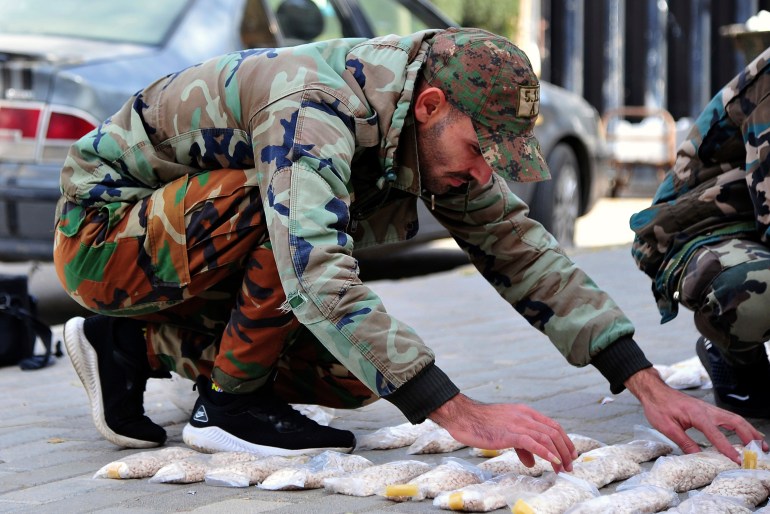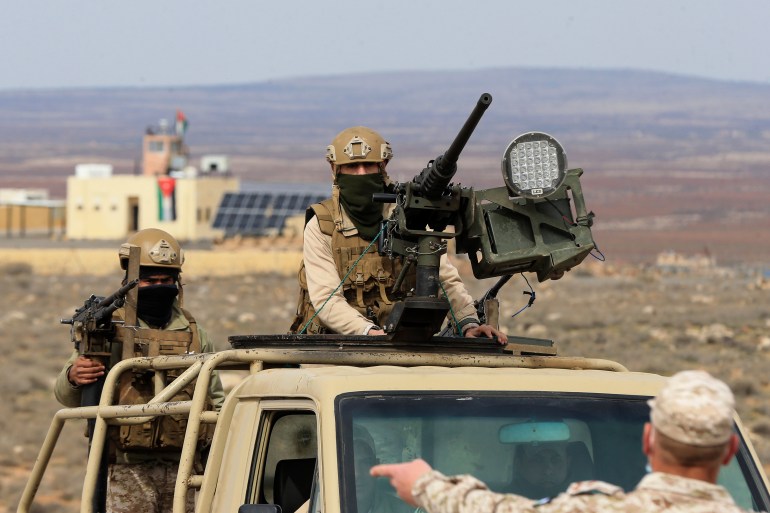
An estimated 10 civilians were killed According to local media, air strikes on the neighboring towns of Arman and Malh in the southeastern Syrian province of Sweida.
However, Jordanian forces are believed to be behind Thursday’s attacks his government has not yet confirmed any involvement.
Sweida 24, a news platform based in the city of the same name, reported that warplanes carried out simultaneous attacks on residential areas after midnight local time (21:00 GMT).
The attack in Malh caused material damage to some houses. However, the second attack in Arman collapsed two houses, killing at least 10 civilians, including four women and two girls, both under the age of five.
Jordan is said to have been carried out previous raids in Syria, usually near the common border of both countries, to prevent arms smuggling and drug trafficking.
But residents of the towns attacked on Thursday questioned the choice of targets.
“What happened was a massacre of children and women,” Murad al-Abdullah, a resident of Arman, told Al Jazeera. “The airstrikes that targeted the villages are far from being identified as a fight against drug traffickers.”
Al-Abdullah said the bombing was not limited to homes of people suspected of being involved in drug trafficking. He noted that other houses were also damaged, terrorizing sleeping villagers and causing unnecessary deaths among civilians.
“It is unreasonable that two girls no older than five are involved in drug trafficking,” al-Abdullah said.
Tribes and residents of villages near the Jordanian border issued separate statements this week denying any involvement in drug smuggling.
The statements also promised to help Jordan eliminate criminal networks that smuggle drugs and other drugs across the border. In return, they called on Jordan to stop bombing civilian sites.
The spiritual leader of the Druze religious group in Syria, Sheikh Hikmat al-Hajri, appealed to Jordan to prevent further bloodshed among the civilian population.
“The attacks should focus exclusively on the smugglers and their supporters,” al-Hajri said in a public statement.
Al-Abdullah, the Arman resident, also called on Jordan to work with Syrian locals to stop human trafficking.
“We are a society that does not accept the production or trafficking of drugs, and the Jordanian government should have communicated with our elders to cooperate in combating drug trafficking instead of bombing residential neighborhoods,” al-Abdullah said.
Suspected attacks targeted drug trafficking
Thursday’s attack is believed to be the third time this year that Jordanian aircraft have carried out air strikes on Syrian territory.
An earlier attack occurred on January 9, killing three people in the Sweida countryside, according to the Syrian Observatory for Human Rights, a London-based human rights monitor.
The Observatory said five smugglers were also killed in a border attack on January 7. Fighting occurred sporadically over a ten-hour period that day.
By the end of the raid, Jordanian forces had arrested 15 suspects. They also claimed to have seized 627,000 tablets of the same captainan illegally manufactured amphetamine, and 3.4 kg of cannabis.
“What Jordan is doing can slow down drug smuggling, but unfortunately it cannot stop it completely. The border with Syria is 375 km (233 miles) long and smuggling operations are carried out by professional groups, not by any individual carrying bags of drugs across the border,” said Essam al-Zoubi, a lawyer and human rights activist.
Counternarcotics officials in the United States and other Western countries said war-torn Syria has become a major hub for drug trafficking in the Middle East.
For example, the country has become the main manufacturer of Captagon, a multi-billion dollar company. Experts say smugglers are using Jordan as a route through which Syrian drugs can reach oil-rich Gulf states.

Al-Zoubi and other human rights activists have warned that the Syrian government itself is involved in the drug trade to support its finances drained by the war.
The Syrian Army’s Fourth Armored Division reportedly played a role in overseeing the country’s drug operations alongside the Iranian-backed armed group Hezbollah, an ally of the Syrian government.
“The officials responsible for drug smuggling in Syria are Hezbollah in Lebanon, the Fourth Division and the Syrian regime security apparatus that controls southern Syria,” al-Zoubi said.
Jordan and its allies have also taken other approaches to stop the drug trade.
For example, in March last year, the US Treasury Department imposed a penalty Sanctions against six people, including two relatives of Syrian President Bashar al-Assad, for their roles in the production and trafficking of Captagon. Some of the sanctions also had ties to Hezbollah.
But even targeted attacks on Syrian drug dealers will not be enough to stop the trade, warns al-Zoubi.
“It does not matter to Hezbollah or Fourth Division drug officials whether traffickers are killed, as the trade itself will continue regardless of the people,” al-Zoubi said, pointing to an example in May 2023.

At that time, Jordanian aircraft had carried out airstrikes on Sweida’s home one of the most famous drug traffickers in Syria, Marai al-Ramthan. He ultimately died in the attack.
Al-Zoubi, however, said his death “did not reduce drug trafficking, but on the contrary increased it.” Other smugglers used his death as an opportunity to expand their trade in his absence.
Omar Idlibi, director of the Doha office of the Harmoon Center for Contemporary Studies, said geopolitical unrest in the region has also allowed human trafficking to flourish.
“Drug smuggling operations into Jordan did not exist before 2018, before the Syrian regime and its Iranian allies retook control of southern Syria from opposition factions,” he told Al Jazeera.
Idlibi explained that the start of Russia’s full-scale invasion of Ukraine in 2022 had a direct impact on the expansion of drug operations.
As Russia focused on Ukraine, it withdrew some of its troops from Syria, allowing Iranian militias and Hezbollah forces to expand. These groups then turned some Syrian army headquarters into logistics centers for the production, transport and smuggling of drugs into Jordan.
Russia’s need for military equipment from Iran has also led it to turn a blind eye to drug smuggling in Syria, Idlibi explained.
“Everyone knows that the Syrian regime and Iran are behind the terrorist activities on the Syria-Jordanian border, and if they are not stopped at the source, they will continue at different paces,” Idlibi said.






Recent Comments